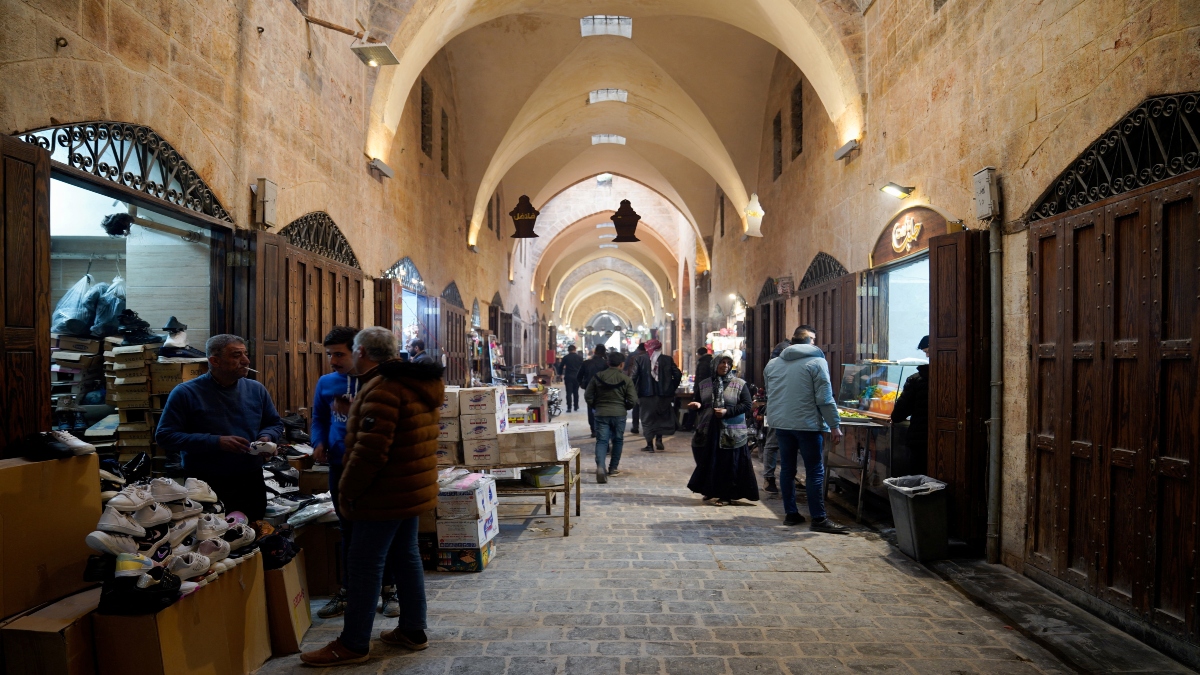The prime minister of ousted Syrian President Bashar al-Assad on Monday said he had agreed to transfer power to the rebel-led Salvation Government, following the rebels’ capture of Damascus and Assad’s flight to Russia, according to a Reuters report,
This power shift marks the end of more than 50 years of the Assad family’s authoritarian rule and comes after 13 years of devastating civil war, leaving Syrians both at home and abroad hopeful yet uncertain about the country’s future.
On Monday, Damascus began to come alive again, with traffic returning to the streets and people emerging after a nighttime curfew, although most shops remained closed. Rebel fighters from the countryside gathered in the heart of the capital, congregating in the central Umayyad Square.
“We had a purpose and a goal and now we are done with it. We want the state and security forces to be in charge,” Reuters quoted Firdous as saying.
Omar said he had been battling the Assad government since 2011 and was now looking forward to laying down his weapon and returning to work as a farmer in provincial Idlib.
According to Reuters, citing Al Arabiya TV, Assad’s Prime Minister Mohammed Jalali said he had agreed to hand power to the Salvation Government, an administration based in a small pocket of rebel-held territory in northwest Syria.
Impact Shorts
More ShortsHe said the handover could take days to carry out.
The main rebel commander, Ahmed al-Sharaa, also known as Abu Mohammed al-Golani, met overnight with Jalali and Vice President Faisal Mekdad to discuss the formation of a transitional government, reported Reuters, citing a source familiar with the talks.
Al Jazeera reported that the transitional authority would be led by Mohamed al-Bashir, who previously headed the Salvation Government before the rapid 12-day offensive that captured Damascus.
A source close to the rebels in Idlib confirmed Bashir’s nomination, though no official announcement had been made.
Syria’s banks are set to reopen on Tuesday, with staff instructed to return to their offices, according to sources at the central bank and commercial banks.
At the Interior Ministry, which once oversaw Assad’s police force, furniture had been looted and employees were absent. Armed rebels were stationed there to maintain order.
The oil ministry called on all workers in the sector to return to their posts on Tuesday, assuring that security would be provided for their safety.
The advance of a militia alliance led by Hayat Tahrir al-Sham (HTS), formerly affiliated with al-Qaeda, marks a historic shift in the Middle East.
This turn of events brings an end to a war that has claimed hundreds of thousands of lives, triggered one of the largest refugee crises in modern history, and left cities in ruins, the countryside deserted, and the economy ravaged by global sanctions. Refugees in camps across Turkey, Lebanon, and Jordan may finally return home.
A new history
Assad’s fall wipes out one of the main bastions from which Iran and Russia wielded regional power. Turkey, long aligned with Assad’s foes, emerges strengthened.
The Arab world faces the task of reintegrating one of the Middle East’s pivotal states, while containing the militant Sunni Islam that has in the past metastasized into the sectarian violence of Islamic State.
HTS is still designated as a terrorist group by the United Nations, but has spent years trying to soften its image to reassure foreign states and minority groups within Syria.
The group’s leader Golani, who spent years in U.S. custody as an insurgent in Iraq but later broke with al Qaeda and Islamic State, has vowed to rebuild Syria.
“A new history, my brothers, is being written in the entire region after this great victory,” he told a huge crowd at the 1,300-year-old Umayyad Mosque in Damascus on Sunday.
The rebels announced on their Telegram channel that they were granting amnesty to all conscript soldiers drafted under Assad.
Assad’s police state was known for generations as one of the harshest in the Middle East, holding hundreds of thousands of political prisoners. On Sunday, elated inmates poured out of jails.
One of the final areas to fall was the Mediterranean coast, heartland of Assad’s Alawite sect and site of Russia’s naval base.
Two Alawite residents said so far the situation had been better than expected, seemingly without retribution against Alawites. One said a friend was visited at home by rebels who told him to hand over any weapons he had, which he did.
Near Latakia, a rebel delegation entered the Assad family’s hometown of Qardaha and met with elders there, one resident said, describing the interaction as calm. The town is the site of a mausoleum for Assad’s father, who seized power in a coup in 1970 and ruled until his death in 2000.
The Kremlin said it was too early to know the future of Russia’s military bases in Syria, but it would discuss the issue with the new authorities.
Israel said Assad’s fall was a direct consequence of Israel’s punishing assault on Iran’s Lebanese allies Hezbollah, who had propped up Assad for years.
Since rebels entered Damascus, Israel has struck sites in Syria. Israeli officials said those airstrikes would carry on for days to keep Assad’s former arsenal out of hostile hands.
The U.S., which has 900 soldiers in Syria alongside Kurdish-led forces in the east, said its forces hit around 75 targets in airstrikes on Islamic State on Sunday.
With inputs from agencies
)